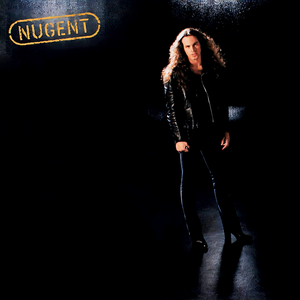Published on Sep 6, 2004
Seems like Ted Nugent has always been one to believe his own
press releases. Despite having a career sinking faster than the
Titanic, he pressed on with his solo career, leaving Epic Records
after nearly a decade and signing with Atlantic. Apparently, Nugent
believed he was still capable of writing catchy songs which would
convey his own personal and political views and win over zillions
of fans.
But one listen to
Nugent, his 1982 release, and one can see a truth blatantly
obvious to everyone except Nugent himself: he was entirely out of
touch with musical reality, and was cranking out absolute dreck if
only to satisfy his own ego.
You’d think that reuniting with Derek St. Holmes, who was an
intregal part of Nugent’s band for the first few albums, would be
enough to spur him on to writing and recording an album of at least
halfway decent songs. Think again, buckeroo. The songwriting on
this disc is weaker than month-old coffee, the guitar work is
almost non-existent (especially Nugent’s fiery solos), and the
overall message is trite and occasionally offensive, even by
Nugent’s standards.
After getting off to a halfway decent start with “No, No, No,”
Nugent quickly falls into misguided patriotism with the song “Bound
And Gagged,” where he goes off against fundamentalists taking our
citizens hostage. One almost finds themselves wishing that Reagan
had offered Nugent to Islamic Jihad in trade. (Probably a good
thing it didn’t happen; the terrorists wouldn’t be able to get a
word in edgewise in the hostage video.) Four words, Ted:
shut the fuck up
.
More often than not, the songs on
Nugent sound like third-generation studio throwaways –
tracks that wouldn’t even make the budget-buy box set after a group
had broken up. Songs like “Fightin’ Words,” “Don’t Push Me,” “We’re
Gonna Rock Tonight” and “Habitual Offender” all stink like last
week’s fish. (Nugent even goes so far as to recycle an AC/DC guitar
lick on “Fightin’ Words” – yeesh.)
Nugent’s songwriting even dares to explore an interracial
relationship – as told in the pages of Hustler – on “Ebony,” a song
which had to have set race relations back at least a decade.
Only at the end of the disc with “Tailgunner” does any semblance
of hope seem to return to the scene, but by then it’s much too
little, far too late. By then,
Nugent seems to prove what everyone except the Motor City
Madman had anticipated – namely, Nugent’s time as a superstar was
over. Pass on this one… you won’t regret it.
